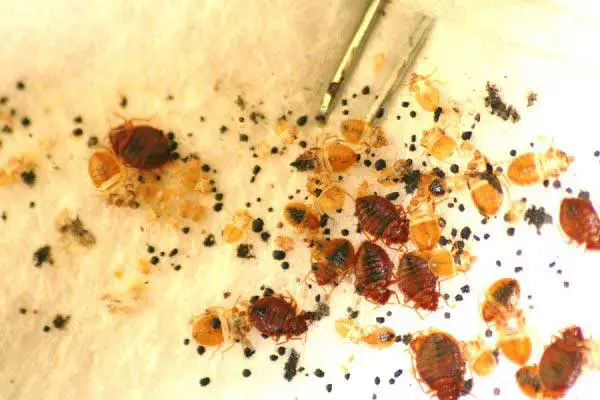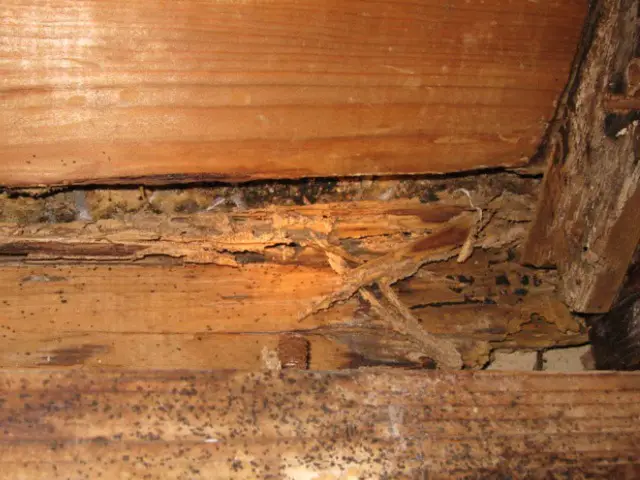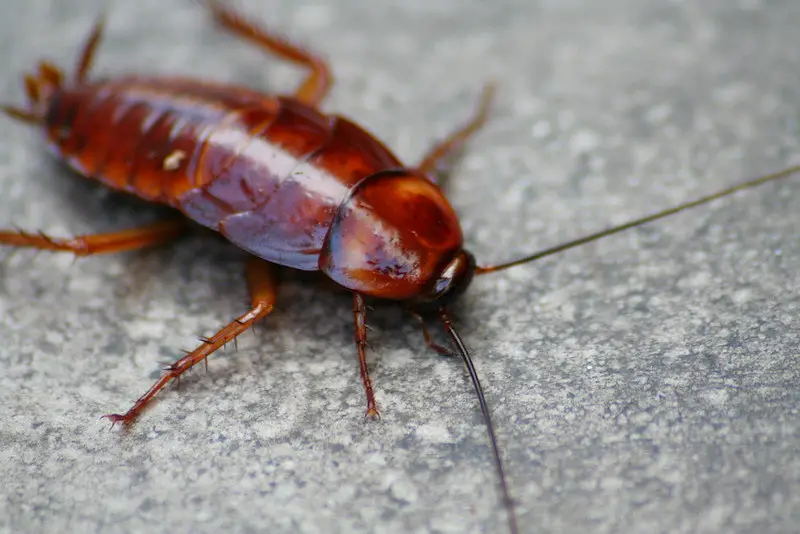Are bed bugs contagious?
Bed bugs are a lot of different things, they are pests and bloodsucking parasites, but they are not contagious. They aren’t known to transmit disease. Bed bugs will find ways to get into your home, into your bed, into your bedsheets, but they do not spread person to person, meaning they are not contagious.
Bed bugs are bloodsuckers and require a human host. These pests are great travelers. Bed bugs will hitch a ride on anything from bed mattresses to bed frames to bedsheets, suitcases and everything in between. It isn’t surprising if you are wondering if bed bugs are contagious.
Can you get bed bugs from being around someone who has them?
Technically you cannot get bed bugs from being other people who have them. Unfortunately, bed bugs are easy to pick up, especially in highly-trafficked locations such as hotels. When visiting busy places with a high turnover rate of overnight guests, such as hospitals, hotels and airports, it’s critical to protect yourself any way you can.
Bed bugs travel on bags, suitcases, clothing and bags, so be sure to inspect your belongings and give yourself and your personal items such as your luggage a good once-over before heading home.
Plus, bed bugs mate and lay eggs at such a fast rate that it doesn’t take long for homeowners to find themselves suffering from an infestation.
Related posts:
- How To Get Rid Of Bed Bugs in California?
- How To Keep Bugs Away From Your House?
- Can bed bugs bite thru clothing?
- Do Spiders Eat Bed Bugs?
Contagious or not, bed bugs can travel from house to house quickly. Bed bugs spread even faster in shared living spaces like college dorms and apartment complexes. Transporting bed bugs can be easy simple as leaving your jacket, suitcase, backpack, or other personal items in an infested location and carrying them back to your house.
Bed bugs spread at such a fast rate that it’s not a surprise that some people think bed bugs are contagious. In the case of extreme infestations, these parasites have been known to move throughout buildings via floor, ceiling and wall openings on cables and pipes.
Bed bugs are not contagious. They cannot be transmitted from one person to another person. But bed bugs can hide and live in a person’s bedding, clothing, luggage, and furniture. When these items enter a home or are transported to another area, they can transport the bed bugs.
Bedbugs are not contagious because they are not transmitted directly from person to person. Bed bugs feed on human blood. Once a bed bug sucks your blood, it will go back to hiding until it’s time to feed – yes on you – again. However, it seems like bedbugs may be contagious because they can live in your bedding, mattress or clothing.
The frustrating thing about bed bugs is that we are transporting them. In essence, we are spreading bed bugs unknowingly. After we have transported these parasites, all they have to do is wait to encounter another warm body for a tasty blood meal. Experts suggest that the main hosts for bed bugs are people. Generally, bed bugs ignore pets like cats and dogs. But bed bugs are spread via bedding material used for pets, especially if the pet bed is near to bedding used by pet owners.
So, are bed bugs contagious? No. Bed bugs don’t live on people. They can’t be directly transmitted from one person to another. However, as quick as they are to catch a ride on furniture, mattress, clothing, or bedding, they are easy to transport. So the best way to protect yourself and make it harder for bed bugs to spread from home to home is to stop the infestation before it starts:
- Carefully examine when buying used furniture for bed bugs. These parasites are experts at hiding from prying eyes. Look in the joints of drawers and between sofa cushions.
- Once a week, inspect your bedding, mattress and bed frame. Learn about signs of bed bugs. Make sure that you aren’t transporting any surprise visitors into your home.
- Keep your room clutter-free. If you reduce clutter, you will also reduce the possible hiding places of bed bugs. The fewer hiding places they find, the less likely will bed bugs set up camp in your home.
- Make sure your personal items are off the bed when in hotels or B&Bs. If you store your suitcase on a valet rack during your hotel stays, you will make it more difficult for bed bugs to catch a ride.
- Inspect your luggage and personal belongings after each trip. Before you enter your home, check your backpack, suitcase, accessories, and bags. You should also give your clothes a once over; bed bugs can travel on clothes, too, as you know.
How easily do be bugs spread?
It’s true that bed bugs are not contagious, but these pests easily spread from place to place. Bed bugs are easily carried on household and personal items such as mattresses, beds, bedsheets, used furniture and more.
Bed bugs are experts at waiting until the time is right. They hide out of sight wherever they can. Bed bugs are known to travel on personal belongings and clothes. They can get as close as possible to people and come out during the night to suck your blood.
Typically, this means that bed bugs live less than ten feet from where you sleep. Creepy, right? Bed bugs attach themselves to anything from baseboards, mattresses and box springs to picture frames, books, and used furniture.
Even if not contagious, get rid of bed bugs
Bedbug infestation reports are growing all over the world. Unfortunately, with bedbugs, how to eliminate the infestation is not as easy as it may seem. Working in the bed bug elimination industry, I’ve seen everything when it comes to bed bugs. I have many pointers that will help you with bed bugs and how to exterminate them, so let us get down to business! I have gained tons of great information and instructions to help you exterminate them forever, so let’s talk about what you need to do.
First, you need to understand what you’re up against with bed bugs. You cannot resolve a bed bug infestation in an hour. You must work hard to get rid of bed bugs. With bed bugs, how to kill them is an art form. If you think you can easily exterminate bed bugs, you are wrong. Make sure you understand what it takes to get rid of these pests.
If you don’t do your research, you will not know how to kill the bed bugs. It is time to discuss what to do with your mattress. Throw out your old mattress, or if you cannot afford it, get a bed bugs mattress encasement. Buying a new mattress is the better option. With a cover, you are basically covering a bed bug-infested mattress.
When you are dealing with a bed bug infestation, you need to clean your bedroom. This means everything in your room will have to be cleaned. You need to wash your clothes, blinds or curtains, and anything else you can clean. Bed bugs will live in furniture and headboards.
With bed bugs, how to get rid of them may take some time. I constantly inform people that they should be aware that bedbugs are much harder to control than roaches or bedbugs. Bedbug elimination pesticides are available, but they will not do any good unless you start taking action. The bedbugs fast, and your minor issue will become a huge issue soon if you don’t take action now. So make sure you get rid of them as soon as possible. Don’t wait for your bed bug infestation to get worse!
Bed bug facts
Bed Bugs are small pests. Adult bed bugs are smaller than a quarter of an inch in size. They feed on the blood of animals and humans.
Although not equipped with wings, the bed bug does possess the ability to move very quickly and is prone to rapid infestation as a result. The bed bug concern is a common one, as these tiny mites are known to have traveled from their place of origin in Asia to the rest of the globe.
How common are bed bug infestations?
It is far from unusual to find an infestation of bed bugs, but what is essential is that we know where they live, how to find them and what to do about them.
The female Bed Bug will lay eggs any day. The lifespan of a bed bug is about four to six months. Some of them may live up to a year. This could result in a rapid explosion of the bed bug population.
Bed bugs are in action during the night – when we are sleeping– and the first clue to a bed bug infestation is the presence of marks on the skin in the morning. They feed during the night, and as it feeds on the blood, it leaves behind marks of its presence. A bed bug feeds by spearing the skin and inserting a tube with which it sucks out blood. The victim will rarely be aware they are being bitten as they are normally asleep.
After feeding – which could be as long as ten minutes – the Bed Bug leaves behind a red mark that could swell and irritate continually, bringing irritation and discomfort to the patient. The problem with diagnosis is that the indications of bed bug infestations are often similar to many other skin infections. Scabies leaves behind very similar indications to bed bug infestation, and other insect bites such as mosquitoes can also leave behind a similar telltale mark.
Bed bug bites will usually appear on skin that is exposed while we sleep – the arms and legs, face and neck, are all commonly bitten – and it is to these areas we should turn when looking for indications of the creatures.
The Bed Bug is a night-feeding mite, and it likes to dine on our blood; it also likes to hide, and this is why it is found in our beds and furnishings.
While the bed bugs do not nest like lots of other insects, it does fall to suitable places; hence many will hide together in the crevasses of a mattress, the inside of covers and linings and many dark and secure places.
Bed Bugs are frequently introduced into the home by persons who have been elsewhere and have possibly slept on a number of varied and frequently used beds.
A bed bug problem is not necessarily a case of dodgy hygiene, however, as a lot of hotels and guest houses have also been the source of the problem.
Bed Bug infestations increase very fast; with one female creature laying around five eggs per day, it is easy to see how rapidly the colony can grow.




